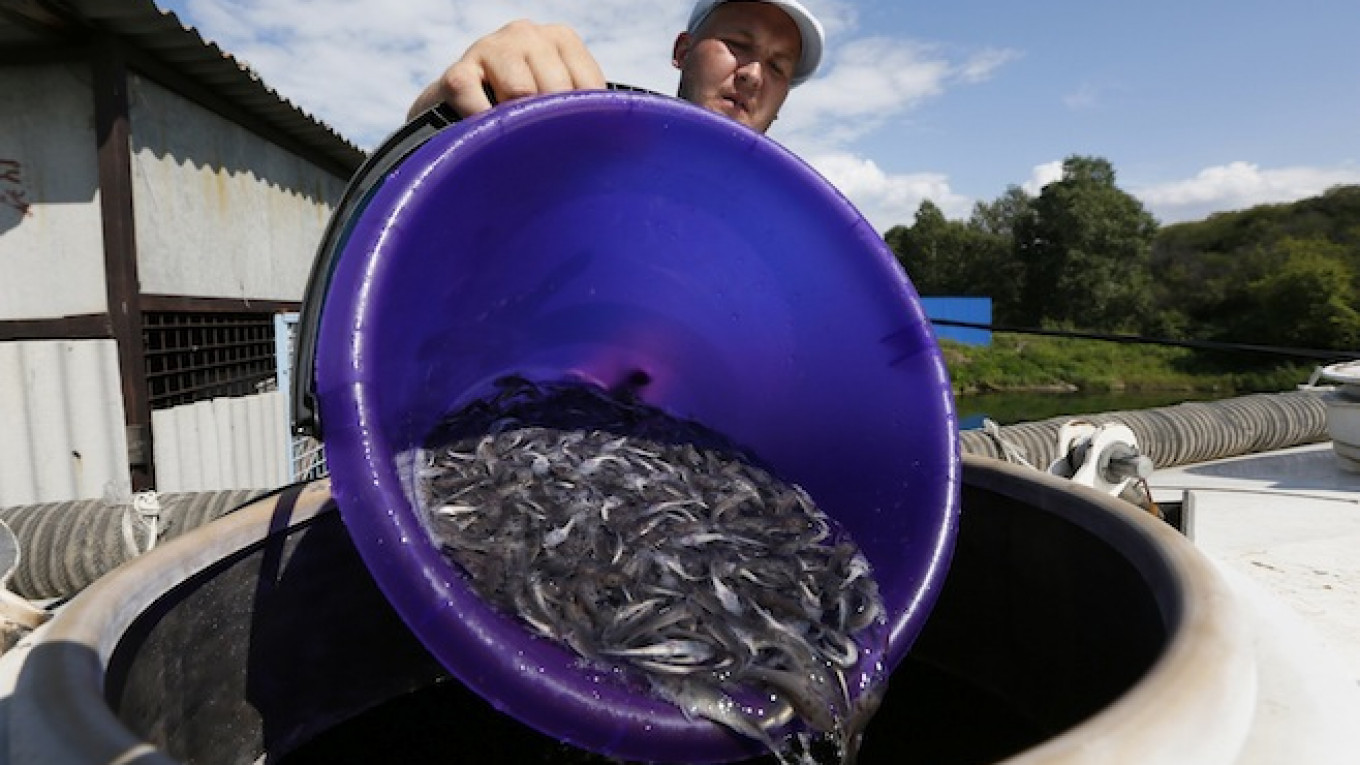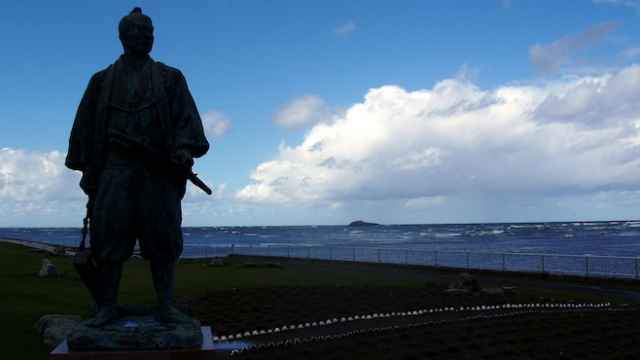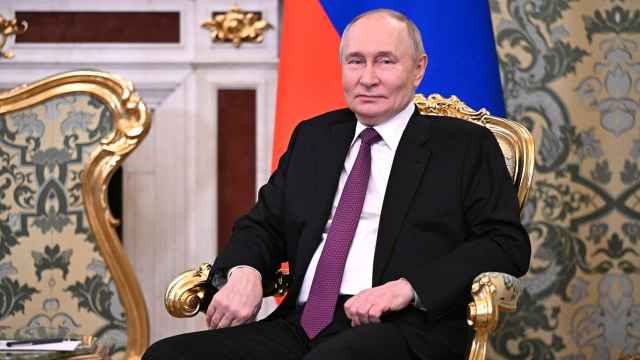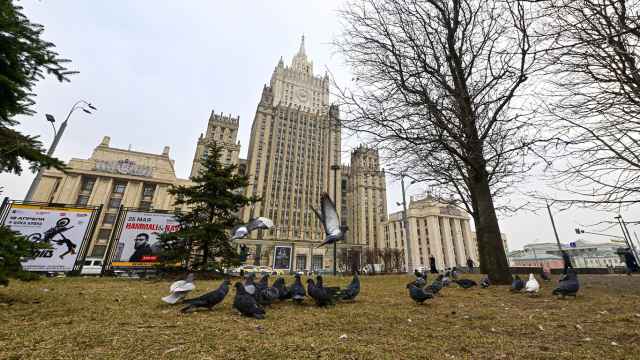A Russian senator wants to impose a full ban on drift-net fishing for Japan in retaliation for that country's sanctions against Russia over Ukraine, in a sign of deteriorating relations between the two neighbors.
Speaking at the Ninth International Fishing Congress in Vladivostok on Thursday, the chairman of the Federation Council's agricultural committee, Gennady Gorbunov, said it was time to consider a "comprehensive ban of Japanese drift-net fishing in Russia's exclusive economic zone," a statement posted on the Primorye region website said.
Since Russia's annexation of Crimea in March and its alleged support of separatists in the east of that country, a number of Western nations and Japan have brought sanctions against Russian individuals and entities believed to have close ties to the Kremlin.
But while Russia has responded with a sweeping ban on food imports from the U.S., the 28 EU countries, Norway, Australia and Canada, it has yet to target Japan.
The head of the Federal Fishing Agency, Ilya Shestekov, who was also present at the congress, said that while Gorbunov's proposal deserved consideration it should be approached with caution.
"On the one hand the proposal would, of course, affect our fishing industry, but on the other hand it has a serious political character. Therefore, the proposal should be worked upon alongside colleagues from other departments, primarily the Foreign Ministry," Shestekov was cited as saying Thursday by state-run news agency RIA Novosti.
The adoption of a ban on Japanese drift-net boats in Russian waters would also imply breaching an agreement signed between the two countries in 1977 giving Japanese drift-net boats the right to fish in Russian waters, Shestakov added.
Drift netting is a commercial fishing practice that involves dragging a net through the surface layers of the water, rather than anchoring it to the bottom.
Relations between Japan and Russia have cooled over the past months, with Moscow upsetting Tokyo by carrying out military exercises in a chain of disputed islands in the Pacific.
The longstanding row over the islands — known as the Northern Territories in Japan and the Kuril Islands in Russia — has prevented the two former World War II foes from signing a formal peace treaty.
A Message from The Moscow Times:
Dear readers,
We are facing unprecedented challenges. Russia's Prosecutor General's Office has designated The Moscow Times as an "undesirable" organization, criminalizing our work and putting our staff at risk of prosecution. This follows our earlier unjust labeling as a "foreign agent."
These actions are direct attempts to silence independent journalism in Russia. The authorities claim our work "discredits the decisions of the Russian leadership." We see things differently: we strive to provide accurate, unbiased reporting on Russia.
We, the journalists of The Moscow Times, refuse to be silenced. But to continue our work, we need your help.
Your support, no matter how small, makes a world of difference. If you can, please support us monthly starting from just $2. It's quick to set up, and every contribution makes a significant impact.
By supporting The Moscow Times, you're defending open, independent journalism in the face of repression. Thank you for standing with us.
Remind me later.






